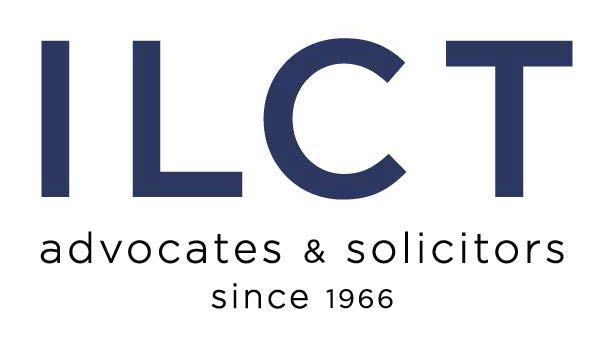Thailand’s Legal Reversal on Cannabis: Restriction to Medical Use Only
Cannabis Re-Criminalization in Thailand: A Legal Overview
Thailand has experienced significant legal transformation concerning cannabis regulation in recent years. Once categorized under stringent narcotic laws, cannabis moved through phases of decriminalization and, as of June 26, 2025, has now been officially re-criminalized. This article provides a structured analysis of the legal landscape surrounding cannabis in Thailand, spanning the period prior to decriminalization, the decriminalized phase, and the current re-criminalization framework.
Cannabis Policy Before 2022
Before 2022, cannabis was classified as a Category 5 narcotic under the Narcotic Act B.E. 2522 (1979). This legal classification included cannabis among Thailand’s most strictly prohibited substances, alongside opium and psilocybin mushrooms. Possession, distribution, cultivation, or consumption of cannabis constituted a criminal offense. The penalties imposed were severe, including significant monetary fines and custodial sentences. While certain medical research activities involving cannabis were allowed under tightly regulated conditions, these exceptions were rare and did not reflect a broader recognition of the plant’s medicinal potential. Cannabis was regarded by the Thai legal system primarily as a dangerous narcotic, and its use was widely stigmatized both legally and socially.
2022–2025: Decriminalization and Commercial Expansion
On June 9, 2022, Thailand became the first country in Asia to decriminalize cannabis by removing it from the controlled narcotics list. This move aimed to promote economic development, wellness applications, and agricultural innovation. Private cultivation of cannabis was permitted following official registration, and products containing less than 0.2% THC were allowed for general use. However, the lack of a comprehensive regulatory framework led to a surge in cannabis cafes and dispensaries. Although the policy officially limited use to medical and health-related purposes, the absence of prohibitions on recreational use resulted in widespread public consumption, especially among tourists and younger consumers.
Since June 26, 2025: Legal Re-Criminalization and Reinforcement of Medical-Only Use
In response to mounting concerns over public health and the proliferation of recreational cannabis use, Thailand officially reintroduced restrictive cannabis regulations, published in the Royal Gazette and effective immediately as of June 26, 2025, without interim provision to protect dispensaries. While not reclassified as a narcotic under the Narcotic Act, cannabis, specifically the flowering buds, has now been designated as a “controlled herb” under the Protection and Promotion of Thai Traditional Medicine Knowledge Act B.E. 2542 (1999).
Under the new framework, the sale, possession, and consumption of cannabis are strictly limited to certified medical purposes. A valid medical prescription issued by a licensed practitioner, valid for no more than 30 days, is required to legally obtain cannabis. Recreational use is now explicitly prohibited. Violations may result in criminal penalties, including imprisonment of up to one year and a fine of 20,000 baht.
The regulation also introduces further restrictions: online sales, vending machine distribution, and sales near schools, temples, or other sensitive areas are banned. Public smoking of cannabis remains prohibited and constitutes a public nuisance offense. Cannabis can only be consumed within licensed premises under medical supervision, and dispensaries must now employ certified medical or traditional practitioners to oversee usage.
Additionally, businesses engaged in cultivation, importation, or sale of cannabis products must comply with Good Agricultural and Collection Practices (GACP) standards and submit monthly transaction records using official forms (Phor.Tor.27, 28, and 29) to the Department of Thai Traditional and Alternative Medicine. These changes mark a significant regulatory tightening compared to the permissive environment of 2022–2025, signalling the government’s intent to reclaim control over the cannabis market and reframe its usage strictly within a medical context.
Failure to comply with these operational restrictions may result in administrative penalties, license suspension, or, in cases involving fraud or public nuisance, criminal charges under the Protection and Promotion of Thai Traditional Medicine Knowledge Act B.E. 2542 (1999).
Business Implications and Strategic Considerations
This legal shift carries profound implications for investors and operators in the cannabis sector. The rapid expansion of cannabis-related businesses between 2022 and 2025, particularly wellness and recreational dispensaries, now confronts a highly restrictive regulatory environment. Business models must be urgently revised to ensure full legal compliance, with a strict focus on medical cannabis supported by partnerships with licensed healthcare providers.
While the recreational cannabis market has effectively been dismantled, investment potential remains in pharmaceutical-grade cannabis, hospital-supply chains, and international exports permitted under the Single Convention on Narcotic Drugs (1961), as implemented through Thailand’s Narcotic Act B.E. 2522 (1979) and relevant FDA licensing regulations. The extent of the law’s impact will hinge on the rigor of enforcement and the evolution of supporting regulations. For both domestic and foreign stakeholders, thorough legal due diligence and close monitoring of policy developments will be critical to mitigating legal and financial exposure.
About ILCT Ltd.
ILCT Ltd. is a full-service law firm based in Bangkok, Thailand, with 59 years of experience providing comprehensive legal solutions to domestic and international clients. Our firm offers expertise across a wide spectrum of legal fields, including corporate and commercial law, mergers and acquisitions, intellectual property, dispute resolution, taxation, regulatory compliance, and foreign investment. Beyond these core areas, ILCT Ltd. delivers tailored legal services to meet the diverse needs of businesses operating in various industries, ensuring strategic, efficient, and compliant solutions in an ever-evolving legal landscape. Our multidisciplinary approach, combined with in-depth knowledge of Thai and international law, enables us to assist clients in navigating complex legal and business challenges with confidence and clarity.
For more information, please contact us at: law@ilct.co.th
Thailand’s Legal Reversal on Cannabis: Restriction to Medical Use Only [Please download]
